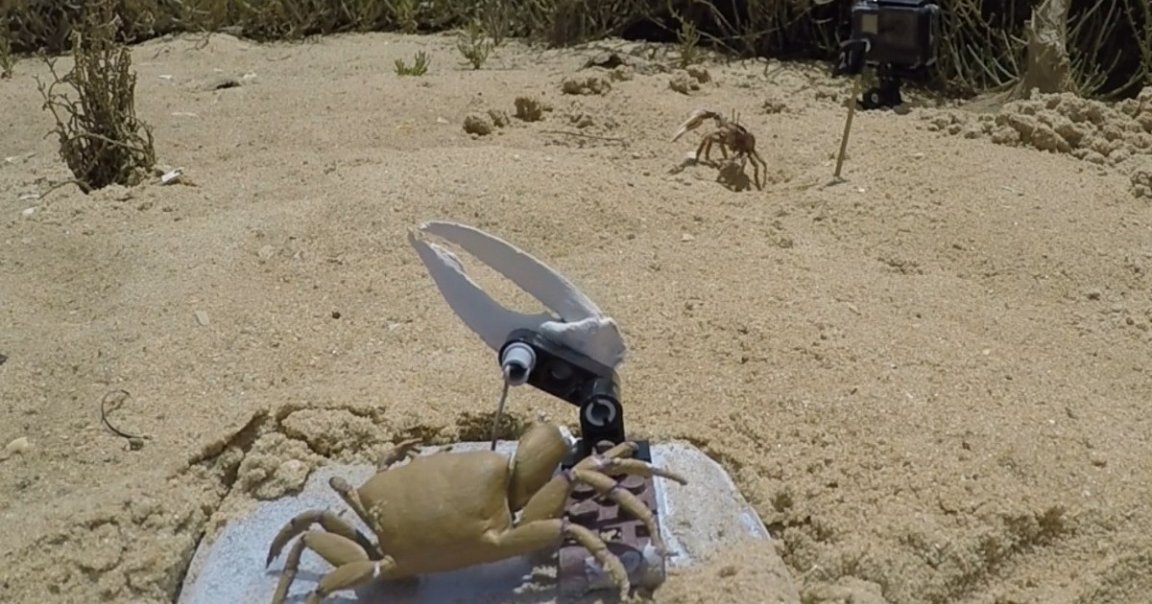
Scientists apparently underestimated the aggression of itty-bitty male fiddler crabs when they deployed a friendly robot version during mating season.
In a paper published in the journal Proceedings of the Royal Society B, animal behavior researchers from the UK’s University of Exeter detailed the embarrassing end to their experiment with “Wavy Dave,” a 3D-printed, Bluetooth-controlled crab-bot trained to wave at its fellow crustaceans.
Known for having one claw that’s much larger than the other, fiddler crabs not only wave their large pincers to attract mates, but actually hold diminutive competitions during their mating seasons in which females choose those whose claws are biggest — yes, seriously — and wave the fastest.
Though scientists already knew that male fiddler crabs will, as lead study author Joe Wilde said in a statement, “adjust their sexual displays if rivals are nearby,” less was known about what exactly those males do in response to the rivals themselves.
To test it out, Wilde — who is now at the Biomathematics and Statistics Scotland lab — and his Exeter colleagues took Wavy Dave out for a spin during fiddler crab mating season in the mudflats of Portugal’s Ria Formosa Natural Park.
Initially, the males left Dave alone, possibly because his larger claw was bigger — and therefore more likely to win the attention of females or pose a threat — than their own. At some point, however, “the females realized [the robot] was a bit odd,” Wilde said, which led some of the male fiddlers to confront him.

Unfortunately, things didn’t turn out so well for the little crab robot.
“One male broke Wavy Dave by pulling off his claw,” the lead author wrote. “We had to abandon that trial and reboot the robot.”
Despite their creation getting torn to pieces, however, Wilde and his team learned a lot from their short-lived experiment.
“If you own a shop and your rivals start selling things really cheaply, you might have to change how you run your business,” the researcher explained. “The same might be true for males signaling to attract females — and our study suggests males do indeed respond to competition.”
As with humans and other animals, the male fiddler crabs who took Dave down have “subtle ways” of adjusting how they act “to compete in a dynamic environment, investing more in [sexual] signaling when it is likely to be most profitable.”
Like so many drunk bros in bar fights, the male fiddlers only attacked Wavy Dave after assessing the situation and getting feedback from the females — and ultimately, nobody lost except for the robot.
More on responses to robots: As Waymo Debuts in Philadelphia, It May Want to Look Into the Time Furious Locals Tore Apart an Adorable Robot